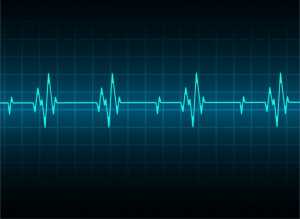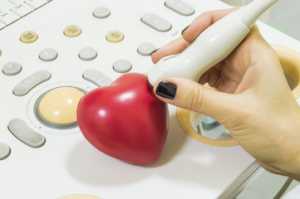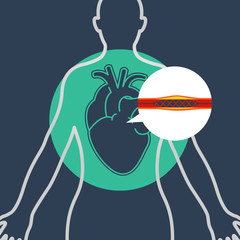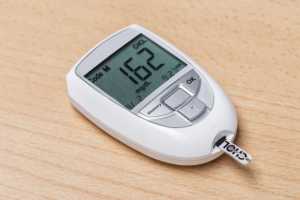Common Screening Tests Performed At Diagnostic Centers To Detect Heart Disease
Screening tests are tests performed to diagnose a disease at the earliest and treatable stage before symptoms appear. Screening tests include imaging tests that produce images of internal body structures and laboratory tests to check body fluids.
Heart disease is the generic term that covers a range of medical conditions and problems that affect your heart. Coronary artery disease, Arrhythmia(irregular heartbeat), cardiomyopathy(generic term for diseases that affect heart muscle), congenital heart defects(heart defect right from birth), heart infections, and atherosclerosis(buildup of plaque in arteries) are the different types of heart disease.
Heart diseases are diagnosed through physical exams, blood tests, non-invasive tests such as ECG, stress tests, etc., and invasive tests such as Electrophysiology study or cardiac catheterization.
In order to diagnose heart disease, the type of screening test that you need to undergo depends on the medical condition that your doctor suspects in you. Prior to performing the screening test, your doctor will ask you whether you have a personal or family medical history of heart disease as well as conduct a physical exam. These are some of the common screening tests used to diagnose and manage heart disease:
Electrocardiogram(ECG)

Electrocardiogram or ECG is a non-invasive test that measures the electrical activity of your heart. This type of screening test is used to diagnose heart diseases and monitor your heart’s health. By performing an ECG test, your doctor can determine and detect:
- Blockage of coronary arteries
- Irregular heart rhythm
- Insufficient blood supply to heart muscles
- Whether the treatment for heart disease is working or not
- Previous heart attack
- Thickened heart muscles
Your doctor may order an ECG test if you experience symptoms like Chest pain, fast heart rate, dizziness, lightheadedness or confusion, shortness of breath, weakness, fatigue, sensation that your heart is fluttering or throbbing (heart palpitation) and inability to perform exercise(exercise intolerance).
Holter Monitoring
Holter monitor is a device that you can control, used to measure the electrical activity of your heart for 24 to 48 hours. Your doctor may recommend you to wear this portable device when you experience symptoms of heart disease such as:
- Reduced blood flow to the heart
- Heart palpitations
- Irregular heartbeat
The holter monitor records your heart rate and rhythm through electrodes attached to your arms, legs and chest. Once the electrodes are attached, you can return home and continue with your day-to-day activities.
Echocardiogram

It is a non-invasive test that uses ultrasound to create moving images of your heart in order to check for abnormalities in blood vessels as well as heart chambers, walls and valves. Your doctor may order this screening test to:
- Diagnose heart diseases
- Check whether the surgical or medical treatment is working or not
- Monitor the heart valve disease
- Assess the functioning of the heart
The test measures the velocity of blood that leaves your heart, how blood flows through the heart as well as the shape and size of your heart.
Stress Test
Stress test involves raising your heart rate to check the functioning of your heart during physical activity, such as exercise. Since the physical activity makes your heart pump faster and harder, a stress test can detect problems with blood flow in your heart. During this screening test, your blood pressure, heart rhythm and breathing are monitored while you’re riding a stationary bike or walking on a treadmill. Your doctor may recommend this test:
- If you’re experiencing symptoms of irregular heart rhythm or coronary heart disease
- To check the effectiveness of a treatment
- Determine the severity of a persisting heart disease
Cardiac Catheterization

It is an invasive procedure that helps diagnose cardiovascular conditions(conditions that affect heart or blood vessels). During this procedure, a catheter(a long, hollow tube) is inserted in a vein or artery on your arm, neck or groin. Then the healthcare provider threads the tube through the artery until it reaches the heart. With this, your doctor can:
- Diagnose congenital heart defects(heart defect right from birth)
- Measure oxygen and pressure levels in various parts of the heart
- Diagnose problems with your heart valves
- Check pumping of your heart
- Obtain a tissue sample from your heart
Cardiac Magnetic Resonance Imaging or MRI
Cardiac Magnetic Resonance Imaging is a non-invasive test that uses radio waves, a large magnet and a computer in order to create images of your heart and blood vessels. With this test, your doctor can:
- Predict the response of the heart to treatments for coronary heart diseases
- Check the functioning of the heart muscle
- Study the structure of heart muscle
- Ascertain the reason for heart failure
- Identify tissue damage as a result of a heart attack
The test provides information regarding the type and severity of heart disease with which your doctor can determine the treatment for heart diseases, such as
- Coronary heart disease
- Cardiac tumours
- Heart valve problems
- Pericarditis
Blood Tests Used to Diagnose Heart Diseases
Troponin Test
Troponin test is a blood test which is used to measure the level of a protein called troponin in your blood. The test helps diagnose a heart attack and monitor angina(a disease that restricts blood flow into the heart). Your doctor may order troponin test if you’re experiencing symptoms of a heart attack such as
- Chest pain
- Trouble breathing
- Pain in arm, neck, jaw or back
- Discomfort
- Dizziness
- Nausea and vomiting
- Fatigue
Cholesterol Test

A cholesterol test is a test often used to measure the level of types of cholesterol and fats present in our blood such as
- Low-density lipoprotein cholesterol or bad cholesterol
- High-density lipoprotein cholesterol or good cholesterol
- Total cholesterol
- Triglycerides
Your doctor recommend this test if you have a family medical history of heart disease, or have any risk factor like:
- Obesity
- Type 2 diabetes
- Lack of physical activity
- High blood pressure
- Smoking
With a cholesterol test, your doctor can:
- Evaluate the effectiveness of a treatment
- Diagnosis and monitoring of heart diseases
- Assess the success of drug therapy
Plasma Ceramides Test
Plasma ceramides test is often used to measure the level of a lipid called ceramides found in our blood. Our cells typically produce ceramides, and it has a vital role in the growth and functioning of several tissues in our body. Conditions such as Dyslipidemia (Elevated levels of fat in the blood) and metabolic dysfunction leads to the buildup of ceramides in those tissues that aren’t appropriate for storing lipids. Elevated ceramide levels are associated with:
- Ischemic heart disease
- Hypertension
- Type 2 diabetes mellitus
- Insulin resistance
- Atherosclerotic plaque formation
- Myocardial infarction
- Obesity
Lipoprotein (a) Test

This test measures the level of a type of LDL cholesterol known as Lipoprotein (a) in your blood. Elevated lipoprotein(a) indicates that you’re at high risk of developing heart disease. The test is often used to check the risk of heart attack, stroke and certain other heart diseases. You may need to take a lipoprotein(a) test if you have:
- Heart disease(even if you have normal results for other lipid tests that you have undergone)
- Family medical history of heart disease
- High cholesterol even if you have maintained a healthy diet
High-Sensitivity C-Reactive Protein(hs-CRP) Test
Our liver produces a protein known as C-reactive protein as a response to infection or an injury that causes inflammation. The test is often used to check the risk of developing heart disease before you experience symptoms associated with the disease. Elevated High sensitivity C-reactive protein levels indicate that you’re at high risk of developing stroke, heart attack or cardiovascular disease.
High sensitivity C-reactive protein level of more than 2mg/L(milligrams per litre) is a sign that you’ve a higher risk of heart disease. Your doctor can evaluate your overall health through combining your High-Sensitivity C-Reactive Protein test along with other blood tests that you have taken as well as the risk factors of heart disease.
Frequently Asked Questions
What Do the Results of Lipoprotein(a) Test mean?
Normal lipoprotein(a) level is below 30mg/dL(milligrams per deciliter). In most cases, there won’t be a detectable level of lipoprotein(a) in the bloodstream of most people. But if your Lp(a) level is above 30mg/dL, then you may have increased risk of stroke, heart attack, or atherosclerosis.
What is the normal range of LDL cholesterol, and what are the risks of high LDL cholesterol?
The normal range of LDL or bad cholesterol is between 70 to 130mg/dL. Low LDL cholesterol level is essential for your heart’s health. The risks of having elevated LDL cholesterol include Peripheral artery disease, coronary artery disease, stroke and angina.
What do the Results of the Troponin Test Mean?
If your troponin test results show normal levels of troponin for a duration of 12 hours after the chest pain began, then it’s less likely that the symptoms you experienced were caused by a heart attack.
Higher levels of troponin is a sign that you had a heart attack. Congestive heart failure, blood clot within your lungs or kidney disease are other reasons for abnormal levels of troponin.
What is the difference between ECG and Echocardiogram?
Electrocardiogram or ECG is a non-invasive test that measures the electrical activity of your heart through electrodes placed in different parts of your body. But ECG isn’t accurate in determining the pumping capacity of the heart. Therefore, an echocardiogram is used. An echocardiogram test is a non-invasive test that uses ultrasound waves to create images of your heart.
When should I get a cardiac stress test?
You need to take a cardiac stress test if you’re experiencing symptoms associated with heart diseases, such as chest pain, irregular heartbeats, heavy heartbeats, or shortness of breath. You may also take the test if you have a previous heart disease history or if you have diabetes or other risks.